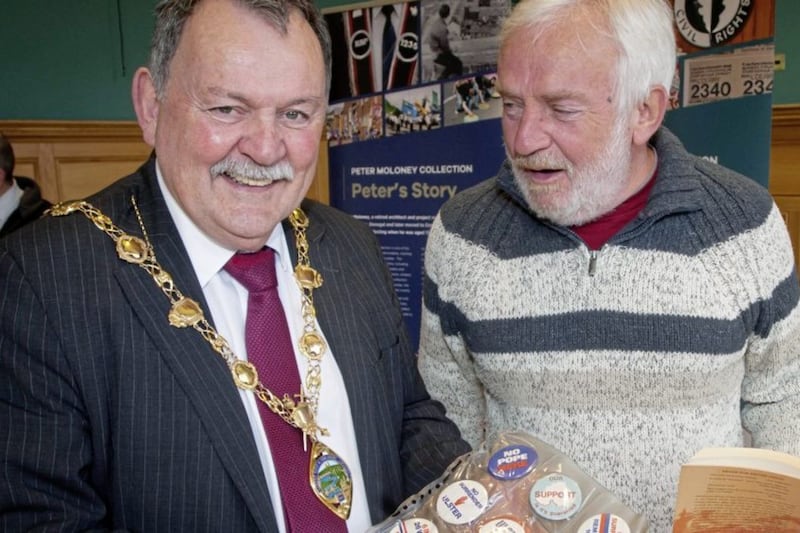ALMOST 50,000 items including posters, photographs and pamphlets covering the Troubles era have been donated to Derry’s Tower Museum.
Collected by retired architect, Peter Moloney, the 48,000-item collection covers a 50 year period and provides an insight into Bloody Sunday, the hunger strikes and the peace and political process.
The museum intends establishing a programme of activities to highlight the significance of the collection.
It is believed to be the largest private archive of memorabilia charting Ireland’s recent history and has been recognised with the launch of the Peter Moloney Partnership.
Originally from Buncrana in Co Donegal, Mr Moloney spent much of his life working as an architect in London. His collection, which also features t-shirts, badges, cartoons and stickers, attracted interest from some of Europe’s leading museums, including the Guernica peace museum in Spain and London’s Victoria and Albert.
However, he opted to donate the archive to Derry’s Tower Museum as a “motivator” for peace and reconciliation and understanding.
“Some of my collection may upset people but we can’t rewrite history. My only wish is that people see it and learn from it," he said.
Derry mayor, Maolíosa McHugh described the archive as a “fantastic collection.”
"The artefacts are so important to the city as a resource in every sense. In a non-judgemental way, we can look back and be fascinated by the tapestry of material included in this collection," he said.
Chairman of Derry’s Bloody Sunday Trust, Robin Percival said the collection would be invaluable for younger generations.
“At the Museum of Free Derry, we welcome young people from across Ireland. They want to know about their own history. Peter’s donation will therefore enhance the experience for our young people. It is a tremendous resource for education,” Mr Percival said.
Mr Moloney will deliver a talk at the Tower Museum on Tuesday April 10 to highlight aspects of his collection.
LibrariesNI has also agreed to take control of 2,000 books and 3,000 journals in the collection, which will be accessible to the public.



